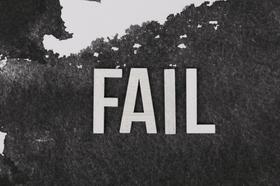Bullying is a problem that can permeate every corner of a child’s life. While school districts across the country take a “no tolerance” stand on bullying, the reality is that many incidents go by without being adequately reported or punished. A non-profit group in Iowa hopes to change the situation through a website allowing parents, students, and faculty to report bullying right from home. The hope is that by making it easier for people to report bullying activities, fewer incidents will go unnoticed by those who can do something about them.
The Eychaner Foundation Introduces Online Reporting
The Eychaner Foundation is a non-profit group in Iowa that promotes tolerance and nondiscrimination among all Iowa residents. According to a report at Heartland Connection, the organization discovered that although Iowa law requires bullying incidents to be reported to the Iowa Department of Education, more than half of all state districts failed to report a single bullying episode during 2011.
“We know that is simply not true,” Michael Bowser, executive director for the Eychaner Foundation, told the Des Moines Register.
While the organization found many possible reasons why reporting was not done, those involved decided to find a solution rather than play the blame game. The foundation set out to make the reporting process as easy as possible for everyone involved in hopes of uncovering and dealing with more bullying problems in Iowa schools.
“Everything’s online for kids. Parents can go online and find their child’s lunch menu for the month. There is no way to do anything about bullying. So we took the form that was out there and made an online version of that,” Bowser explained.
Iowa Law Supports Safe Schools
The efforts to address bullying more efficiently are compatible with the Iowa Safe Schools Law, which went into effect September 1, 2007. According to the Eychaner Foundation’s website, the law states that students and employees are protected from harassment and bullying involving 17 traits or characteristics. These include physical traits like gender or skin color and characteristics like religion, political affiliation, and sexual orientation.
Under the law, harassment or bullying is defined as “written, verbal, electronic or physical conduct based on an actual or perceived trait or characteristic of the student which creates an objectively hostile school environment.” A “hostile school environment” could entail fear of physical harm or property damage, which might impact a student’s mental health, academic achievement, or ability to participate in services or activities at the school.
With this law in mind, the Eychaner Foundation has also provided a reporting form on its website that can be used by parents, students, or teachers.
How to Report Bullying Online
The online form provided by the Eychaner Foundation begins with a pull-down option allowing the person reporting the bullying to ensure the report is sent to the proper school district. There is also a box to list the school where the incident occurred and whether it involved students or staff. The form can also be used by district employees who face harassment or bullying from their employers. The reporter is also asked to select the category of harassment that was witnessed or experienced, whether race, gender, religion, or another one of the 17 protected traits under Iowa law.
The form provides space to document the details of the incident and any relevant comments the reporter deems relevant. Anyone who fills out the form is asked to provide a full name, address, and status (teacher, student, or parent). However, complaints can be logged anonymously as well. If identifying information is provided, it is not forwarded to the annual report when released to the state legislature.
Once the form is completed, it is sent directly to the appropriate school by email and postal mail. The sender will also receive a copy of the report at the email address listed on the complaint. The Eychaner Foundation will also track reports to release numbers to appropriate parties and discover how well the system works.
Will the System Work?
Now that the online reporting system is in place, those involved will be waiting to see if the new methodology effectively reduces bullying in Iowa schools. There is little precedent history to reference as this system gets into full swing since few districts across the country have implemented any sort of online system for this purpose at this time. Careful tracking of the incidents reported and the follow-up provided will be key data in determining whether an online system is the best way to curb bullying.
Since the online reporting system was up and running on December 7, 2011, 30 cases of bullying have been reported at 20 schools across the state, according to a report at ZDnet.com. However, this article also notes that parents genuinely concerned about bullying incidents with their children may be hesitant to use an online system that doesn’t offer the ability to follow up and see if the concern was addressed correctly. At the same time, an anonymous, online reporting system might be the perfect choice for students who are victims of bullying and are afraid to come forward about the problem. Time will tell if this new method will prove compelling enough to implement similar systems nationwide in other states.
Questions? Contact us on Facebook @publicschoolreview.















